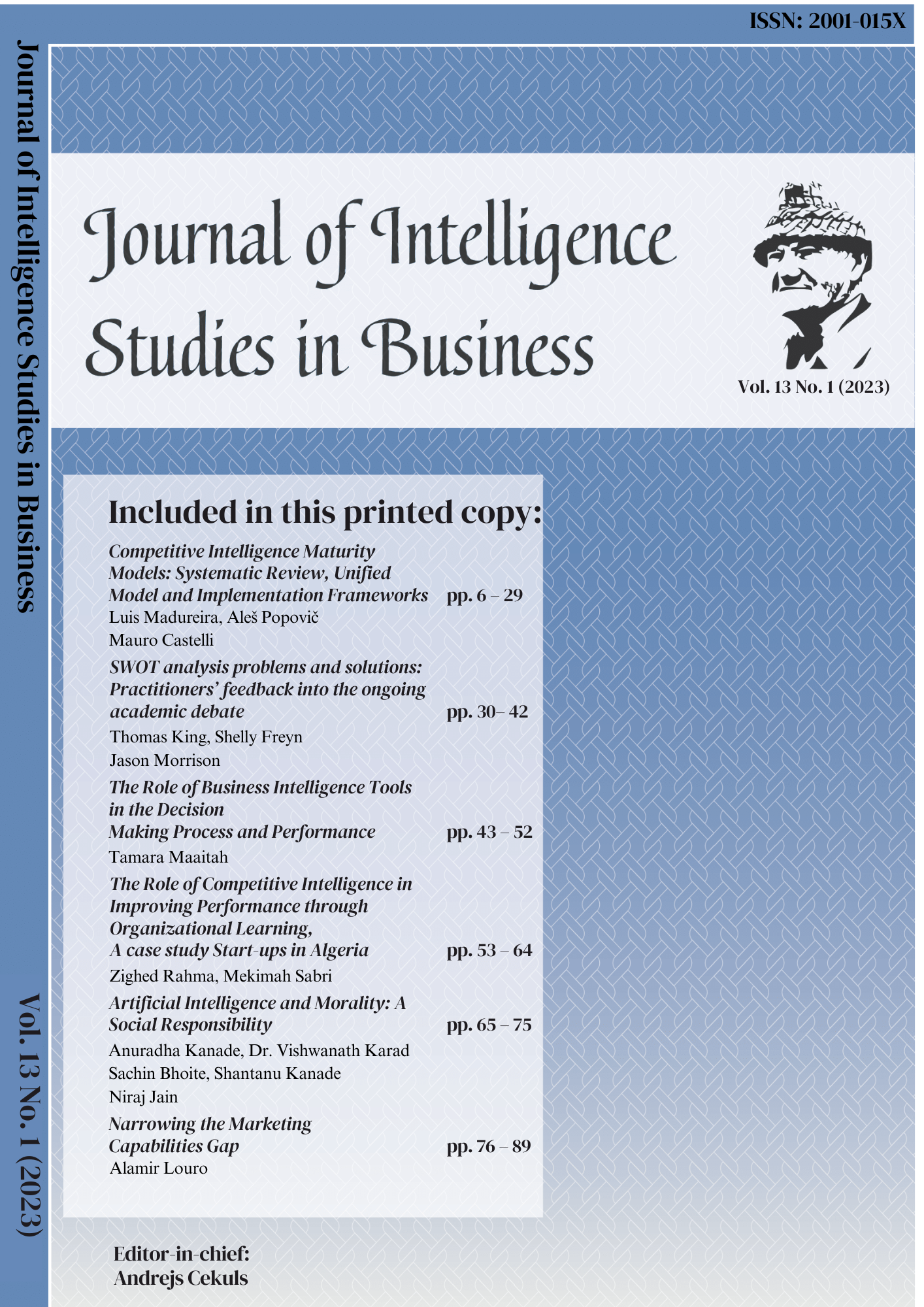Unveiling the Value of Competitive Intelligence: Coordinated Communication and Added Value
DOI:
https://doi.org/10.37380/jisib.v13i1.987Keywords:
competitive intelligence, artificial intelligence, Social media data, decision-making, Added ValueAbstract
Recently, a lot of attention has been paid to several aspects of CI, which influence the decision-making of organizations and the acquisition of competitive advantages. Organizations must leverage data, artificial intelligence (AI), and social capital to enhance their competitive intelligence processes. Social media data, AI and machine learning, big data analytics, dynamic capabilities, and intraorganizational social capital all play significant roles in driving strategic decision-making and improving customer experiences. By integrating these elements effectively, organizations can gain valuable insights, mitigate risks, and stay ahead of the competition.References
Ding, J.-L., Shi, B. (2021) Analysis and Modeling of Enterprise Competitive Intelligence Based on Social Media User Comments. Entrepreneurship Research Journal, 11(2), pp. 47-69.
Wu, Q., Yan, D., Umair, M. (2023). Assessing the role of competitive intelligence and practices of dynamic capabilities in business accommodation of SMEs. Economic Analysis and Policy, 77, pp. 1103-1114.

Downloads
Published
2023-05-21
Issue
Section
Editorial Note
License
Copyright (c) 2023 Journal of Intelligence Studies in Business

This work is licensed under a Creative Commons Attribution-NonCommercial-NoDerivatives 4.0 International License.
Authors who publish with this journal agree to the following terms:- Authors retain copyright and grant the journal right of first publication with the work simultaneously licensed under a Creative Commons Attribution License that allows others to share the work with an acknowledgement of the work's authorship and initial publication in this journal.
- Authors are able to enter into separate, additional contractual arrangements for the non-exclusive distribution of the journal's published version of the work (e.g., post it to an institutional repository or publish it in a book), with an acknowledgement of its initial publication in this journal.
- Authors are permitted and encouraged to post their work online (e.g., in institutional repositories or on their website) prior to and during the submission process, as it can lead to productive exchanges, as well as earlier and greater citation of published work (See The Effect of Open Access).






